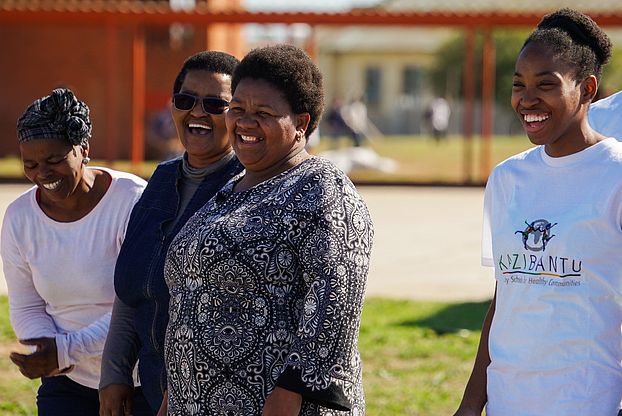Unveiling the challenges and opportunities in implementing health promotion interventions in South African primary schools: insights from the KaziKidz program

The latest publication from the KaziBantu project delves into the lived experiences of key stakeholders with the KaziKidz toolkit, identifying common barriers and facilitators and suggesting key actions to improve the program and its implementation in resource-limited schools in South Africa.
The article by Arnaiz et al. published in BMC Public Health examined the acceptability and feasibility of the KaziKidz health promotion intervention and its implementation among school staff and community members. Additionally, the authors aimed to make practical recommendations to improve the future uptake and maintenance of KaziKidz and similar programs in low-income settings.
Through semi-structured and focus group interviews with school principals, educators, and caregivers, the researchers uncovered crucial themes influencing intervention implementation. Among these were the necessity of prioritizing educators' needs, integrating the program into the school structure, and extending efforts to the broader community. This research took place under the auspices of the UNESCO Chair on “Physical Activity and Health in Educational Settings”, in which the Nelson Mandela University, the Swiss Tropical and Public Health Institute and the University of Basel worked together.
The study highlighted the pivotal role of educators in the successful implementation of school-based interventions. By addressing educators' personal and professional needs and providing adequate training and continuous support, programs like KaziKidz can garner greater engagement and sustainability within schools. Moreover, tailoring the interventions to each school’s resources and priorities through participatory approaches and seeking engagement from the school administration can foster seamless delivery and long-term maintenance. Finally, proactive involvement of caregivers through appropriate communication strategies could translate programs benefits to the home setting.
The implications of this research extend beyond academia, informing policymakers, educators, and community leaders alike. By understanding the challenges and nuances of implementing school-based health interventions, stakeholders can work towards creating more effective and sustainable programs to promote children's health and well-being in underserved communities like those in South Africa.
For further information: Arnaiz, P., Bergman, M.M., Seelig, H., Adams, L., Dolley, D., Gerber, M., Joubert, N., Nqweniso, S., Steinmann, P., Utzinger, J., du Randt, R., Walter, C., Pühse, U., & Müller, I. Acceptability and perceived feasibility of the KaziKidz health promotion intervention among educators and caregivers in schools from South Africa: a qualitative descriptive study. BMC Public Health 24, 934 (2024). https://doi.org/10.1186/s12889-024-18456-3
